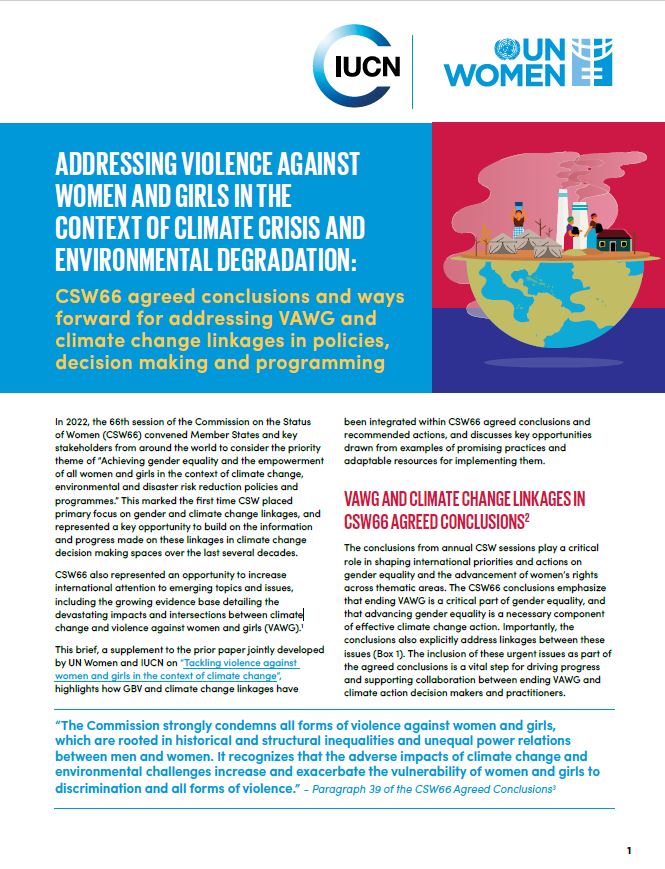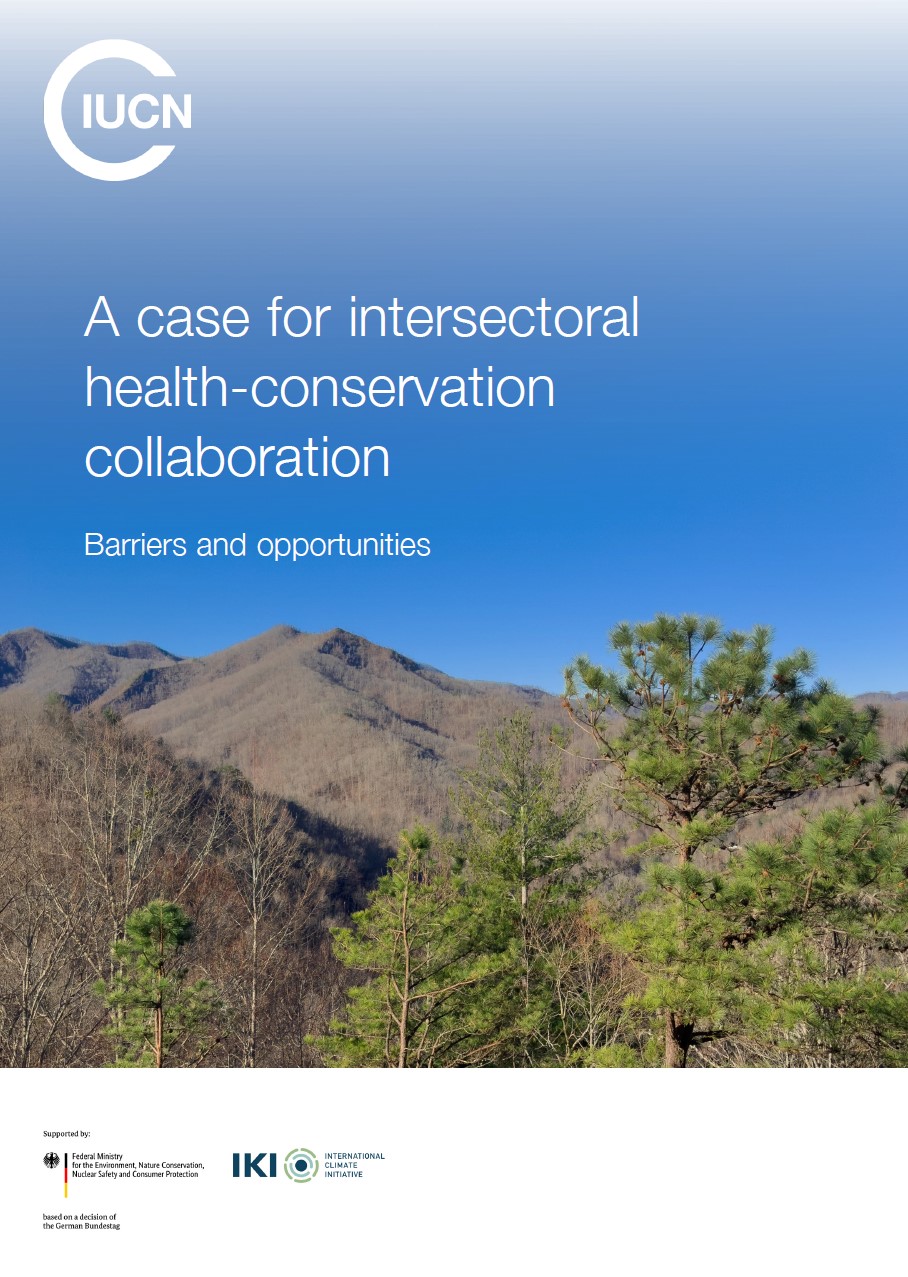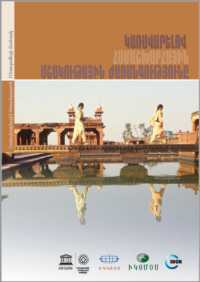Addressing violence against women and girls in the context of climate crisis and environmental degradation
This brief is co-authored by IUCN and UN Women to provide an overview of the conclusions and ways forward agreed at CSW66 for addressing VAWG and climate change linkages in policies, decision making and programming.
In 2022, the 66th session of the Commission on the Status of Women (CSW66) convened Member States and key stakeholders from around the world to consider the priority theme of “Achieving gender equality and the empowerment of all women and girls in the context of climate change, environmental and disaster risk reduction policies and programmes.” This marked the first time CSW placed primary focus on gender and climate change linkages, and represented a key opportunity to build on the information and progress made on these linkages in climate change decision making spaces over the last several decades. CSW66 also represented an opportunity to increase international attention to emerging topics and issues, including the growing evidence base detailing the devastating impacts and intersections between climate change and violence against women and girls (VAWG).1
This brief, a supplement to the prior paper jointly developed by UN Women and IUCN on “Tackling violence against women and girls in the context of climate change“, highlights how GBV and climate change linkages have been integrated within CSW66 agreed conclusions and recommended actions, and discusses key opportunities drawn from examples of promising practices and adaptable resources for implementing them.




